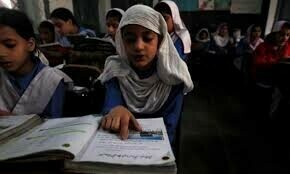LAHORE: The Punjab government will provide clean drinking water to the public by using multiple solutions and different treatment technologies instead of installing water treatment plants without need assessment.
Under the new strategy of phase-1 of the project titled ‘Provision of Clean Drinking Water’ by the Punjab Aab-i-Pak Authority (Papa), seven treatment methods will be used to supply water to Lahore, Rawalpindi, Faisalabad, Dera Ghazi Khan, Sahiwal, Multan, Bahawalpur, Gujranwala, Sargodha and Dera Ghazi Khan. Initially under phase-1, up to 4.7 million people would be provided clean drinking water. Later, the facility would be extended to another 65.3 million people.
“We don’t want to install water treatment plants in every area and this will save our huge financial and human resources,” Papa Chief Executive Officer Syed Zahid Aziz told Dawn.
“We have started this with Jhumra and Renala Khurd tehsils of Faisalabad and Okara districts,” he added. The project will develop safe drinking water supply schemes to the under-served areas, using localised and customized solutions, including sources, supply options and sustainable operation and maintenance models and giving priority to the areas having brackish groundwater. The other objectives include provision of safe, acceptable, physically accessible, and affordable water for drinking purpose to the localities which are deprived of safe drinking water.
The project is meant to safeguard human health, including reduction in the mortality rate associated with lack of access to safe drinking water. The outcome of the project will indirectly help improve health and education, provision of employment opportunities to local people and development of the localities. It will also educate and involve the community in the development of filtration plants and water supply schemes to devise suitable arrangements for improving access to clean drinking water.
Under the new strategy, the water quality, technical parameters, treatment options and cost (per litre) have been divided in seven options which include sweet ground water with no pollution, sweet groundwater with bacterial contamination, groundwater with high TDS (total dissolved solids), groundwater with high arsenic contaminants (bacterial/chemical), sweet groundwater with no microbial pollution and any other water quality.
The treatment options have been identified as disinfect and supply in the area having sweet water with no pollution, installation of hand pumps driven ultra filtration (where required) through disinfection for the areas having sweet water with bacterial contamination, reverse osmosis (RO) or surface water treatment in the area having groundwater with high TDS (brackish), arsenic removal media (ferric hydro-oxide) for the groundwater with high arsenic contamination, ROs with additional filters (F, NO3) for Brackish water with multiple contaminants (bacterial / chemical), piped supply through disinfection and supply through water bottling plant (each bottle having 19 litres of water) if there is other water quality requiring this option. The cost per liter calculated for all water qualities ranges between two paisa and Rs2.
“Following an in-depth study, we, under this Rs5.5bn project phase-I, will have 1,520 Marakiz-e-Aab (water centres). These will include 820 centres supplying clean drinking water through the methods other than the water treatment plants. However, 700 centres would have 700 water treatment / filtration plants,” Mr Aziz said.
Published in Dawn, February 26th, 2021














































